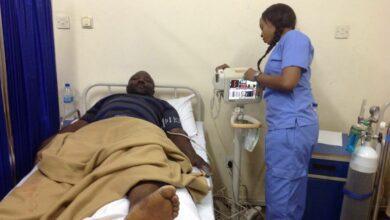
Top 15 Countries with Efficient Healthcare Delivery
Top 15 Countries with Efficient Healthcare Delivery – Having an efficient healthcare system is crucial for any country to ensure the well-being of its citizens. Some countries have managed to build healthcare systems that provide high-quality care in a cost-effective manner. This article will discuss the top 15 countries with the most efficient healthcare delivery based on various metrics like accessibility, affordability, outcomes, and use of technology.Top 15 Countries with Efficient Healthcare Delivery
The Top 15 Countries with Efficient Healthcare Delivery Are:
1. Japan
Japan has one of the most efficient healthcare systems in the world. It has universal health coverage achieved through compulsory enrollment in any of the thousands of competing healthcare insurance providers. This ensures that all citizens have access to healthcare services. The use of technology is widespread in Japan’s healthcare with widespread adoption of electronic medical records and e-prescriptions. The costs are controlled through negotiations between insurance providers and healthcare providers to set standardized fees. As a result, Japan manages to provide quality healthcare at relatively low cost. The life expectancy in Japan is 84 years.
👉 Relocate to Canada Today!
Live, Study and Work in Canada. No Payment is Required! Hurry Now click here to Apply >> Immigrate to CanadaRead Also: Top 15 States with High Poverty Rates in Nigeria
2. Singapore
Singapore’s healthcare system is recognized as among the most efficient and serves as a model for many emerging economies. The system provides universal health coverage while keeping costs low. Singapore manages to provide quality care at 4% of GDP, compared to over 12% in the US. The system is based on mandatory savings, cost controls, competition and incentives for citizens to stay healthy. Singaporeans pay for much of acute care out of pocket with the rest coming from savings accounts. Overall, Singapore delivers excellent health outcomes at low cost.
3. Hong Kong
Hong Kong’s health system provides residents with equal access to healthcare at heavily subsidized rates. Life expectancy in Hong Kong is amongst the highest globally. Key features of their efficient system include strong public-private partnerships, competition, low reimbursement rates and use of technology. Many doctors and hospitals operate private practices alongside public healthcare duties. The private system creates competition that keeps costs low. Hong Kong manages to deliver high-quality healthcare at a relatively low cost due to these efficient system designs.
4. Switzerland
Switzerland has an efficient healthcare system based on competition and decentralized regulation. The healthcare system offers universal coverage to all citizens while maintaining high standard of care. Insurance companies are not allowed to make profits from compulsory insurance policies which keeps administrative costs low. Patients have access to advanced medical treatments and the costs per capita are still lower than countries like Germany, Sweden and the United States. The decentralized competition-based model makes Switzerland’s healthcare system efficient and of high quality.Good morning My Love Message
Read Also: Top 15 Hall of Fame Coaches in Sports History
5. Spain
Spain has an excellent national health system that is ranked 7th best in the world by the WHO. Healthcare delivery in Spain is free and universal for all citizens and residents. The system is propped up by health insurance deductions from salaries and significant contributions from national budgets. Spain is able to deliver quality care and keep costs down due to use of centralized procurement systems and efficient fund transfers between regions. The system has a good balance between public and private healthcare providers which creates healthy competition, keeping costs low.JAMB portal
6. South Korea
South Korea has a relatively efficient single-payer healthcare system. Citizens are mandated to enroll in the National Health Insurance Program. Healthcare is delivered by private providers who compete for patients. To keep costs low, providers are not allowed to advertise or profit from selling drugs and treatments. South Korea also has an impressive use of technology with most providers using electronic medical records. Citizens can easily access their medical history online. Overall, South Korea provides universal high quality care at relatively low cost.
7. Taiwan
Taiwan has a national health insurance system that covers 99% of the population. Implemented in 1995, the single-payer system provides citizens with a wide range of medical services at minimal cost. By global standards, Taiwan spends relatively little on healthcare yet achieves good health outcomes. Costs are kept low by using technology, preventing waste, encouraging competition and piloting new innovations. Many Taiwanese have access to telehealth services. The system faces challenges but remains one of the most efficient models globally.
👉 Relocate to Canada Today!
Live, Study and Work in Canada. No Payment is Required! Hurry Now click here to Apply >> Immigrate to Canada8. Denmark
Healthcare in Denmark is largely financed by the government through taxes. Most services are free for citizens including hospital treatments, physician services and rehabilitation. Out-of-pocket spending accounts for only 15% of total healthcare spend compared to over 30% in countries like Canada and Switzerland. Denmark manages to keep healthcare spending low through centralized procurement of medical equipment, efficient administration and effective fund transfer mechanisms between regions. The system provides high quality universal care to citizens free of charge.Information guide Nigeria
Read Also: Top 15 Greatest Guitar Solos of all Time
9. France
France has an efficient two-tier health system that delivers quality care. It offers universal coverage through compulsory insurance funded by the government and payroll deductions. Out-of-pocket payments account for only 7% of total health expenditure. The public insurance covers standard treatments and doctor visits. Citizens can pay for additional private insurance for better coverage and flexibility. Private competition enables high quality service at controlled costs for patients. Strict regulations also help France control pharmaceutical and treatment costs.
10. Austria
Austria has a social insurance system with about 60 funds covering a range of occupations and self-employed individuals. The delivery system and payments are highly decentralized with private physicians treating over 90% of the population. Citizens also co-pay for services and share costs. The decentralized and partially privatized system creates competition between funds and providers which increases efficiency. Waiting times are low for visits and surgeries. Overall, the system delivers excellent healthcare at relatively low cost.NYSC Portal
11. Israel
Israel has a healthcare system that ensures universal coverage while maintaining low costs. All citizens are entitled to basic health insurance coverage through one of the four nationwide not-for-profit health funds. Standards of care are set by the government with emphasis on public health and preventive medicine. Israelis can augment their standard coverage through voluntary private insurance. The system keeps costs low through budget caps, care coordination and heavy government subsidies. Israel manages to provide high-quality universal care at just 8% of GDP.
12. Australia
Australia has an efficient healthcare system that provides citizens with access to a wide range of health services. A universal public insurance program called Medicare covers basic health services for all Australians. Private health insurance, copayments and fees provide additional funding streams. Managing demand and costs is a key focus of Australia’s health system. Bulk billing, funding caps and diagnosis-related groups are some of the mechanisms used to improve efficiency in Australia’s healthcare. As a result, Australia achieves good health outcomes while spending just 9% of GDP on healthcare.
Read Also: Top 15 Signs and Effect of Piriformis Syndrome
13. Italy
Italy’s healthcare system provides universal coverage to citizens and residents via the Servizio Sanitario Nazionale (SSN). Financed through both direct taxes and national and regional budgets, the SSN provides free or low-cost healthcare access to patients. Ongoing reform efforts have focused on efficiency and rationalizing spending while maintaining quality. Use of technology, prescription monitoring and reduced testing have all created a more efficient system. Citizens can also opt for private insurance for access to private hospitals and specialists. Overall, Italy manages to provide quality universal healthcare through relatively efficient delivery and spending.
14. Belgium
Belgium has a complex healthcare system that is funded through a mix of social contributions, taxes and reimbursement fees. Healthcare delivery is a federal responsibility with execution delegated to provinces or municipalities. The system provides broad coverage and access to patients at a relatively low cost to society thanks to efficiency measures. These include budgets set per disease, agreements that limit drug reimbursements, utilization reviews, and incentives for generic drug use. The mostly private delivery system also creates competition that drives some of the efficiencies.Romantic love message
15. Finland
Finland has one of the most efficient healthcare systems in Europe although costs have risen sharply in recent years. The decentralized system is predominantly government-funded through municipal taxes along with central government transfers and payments from patients. Primary care is delivered through public providers while hospital districts operate secondary and tertiary care. Private providers service about one-fifth of the population. The system keeps costs low through decentralized decision making, patient transfers between primary and secondary care, and use of centralized IT systems. Finland manages to deliver excellent, affordable healthcare via decentralized governance and prudent spending.
Read Also: Top 15 Career Prize Money in Sport
Conclusion
Efficient healthcare systems manage to provide quality care to all citizens while keeping costs under control. The top countries demonstrate efficiencies gained through prudent spending, competition, decentralization, use of technology and innovative cost control mechanisms. With healthcare costs rising globally, the efficient systems like those in Japan, Singapore, Hong Kong and others can serve as models for reforms towards more affordable, sustainable delivery. Overall, efficiency in healthcare remains imperative for enhancing access and maintaining good population health outcomes.
Check JAMB RESULT
Check and Confirm: How much is Dollar to Naira








